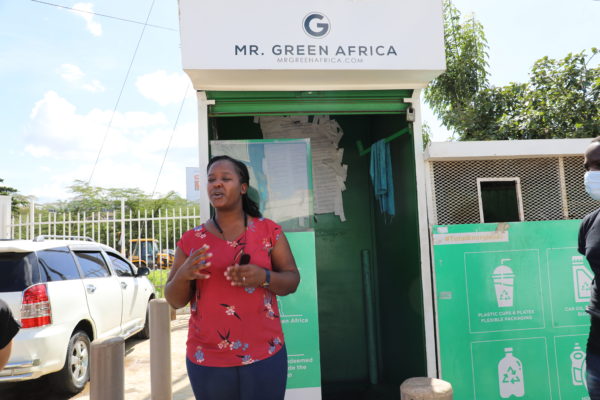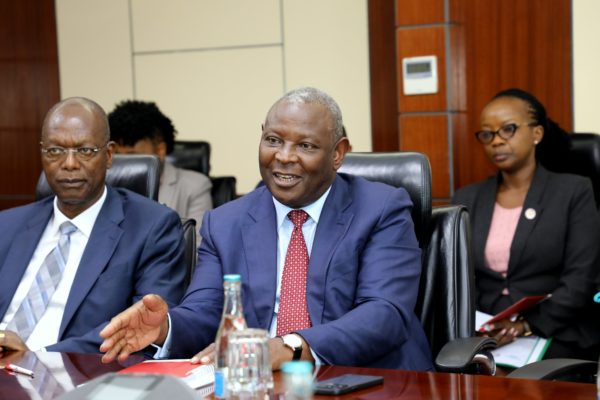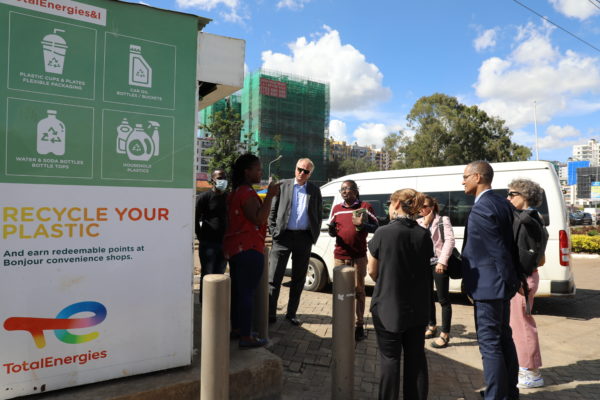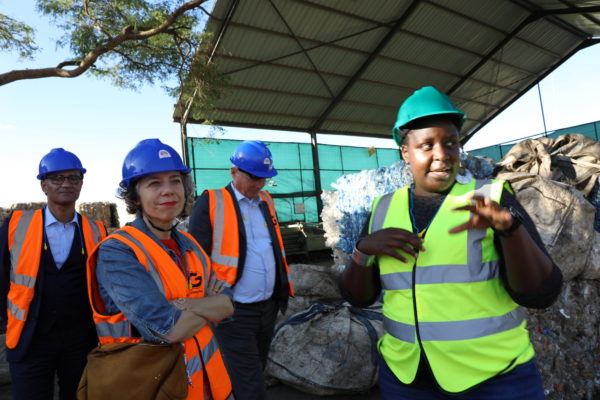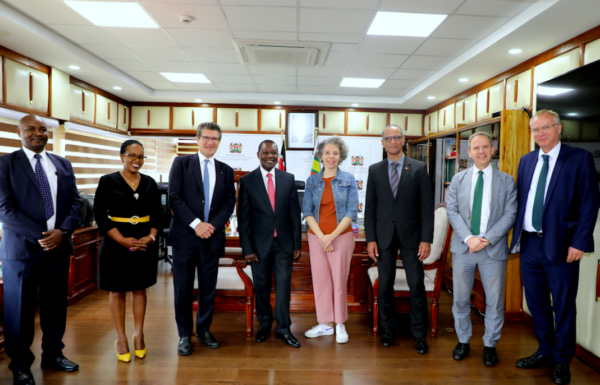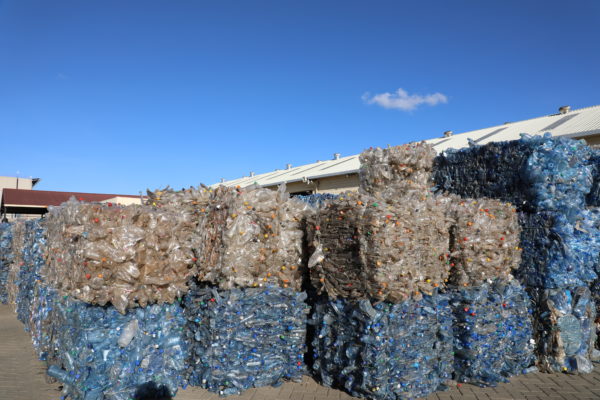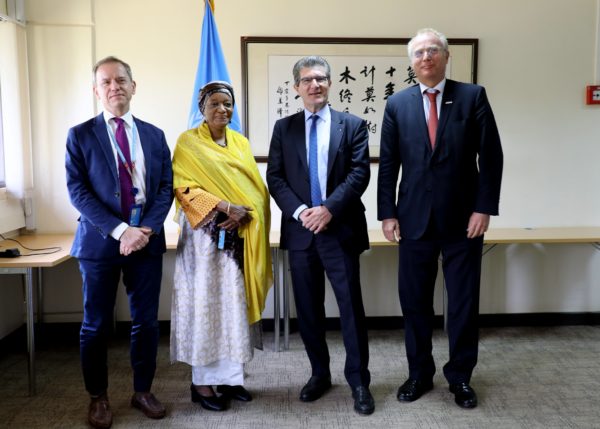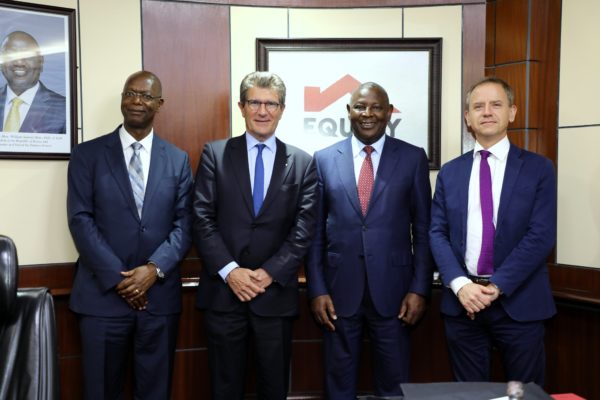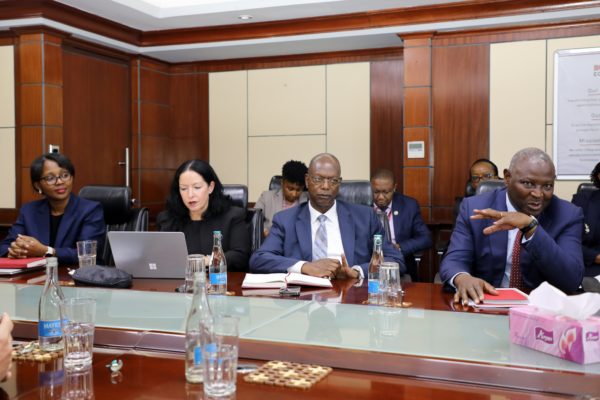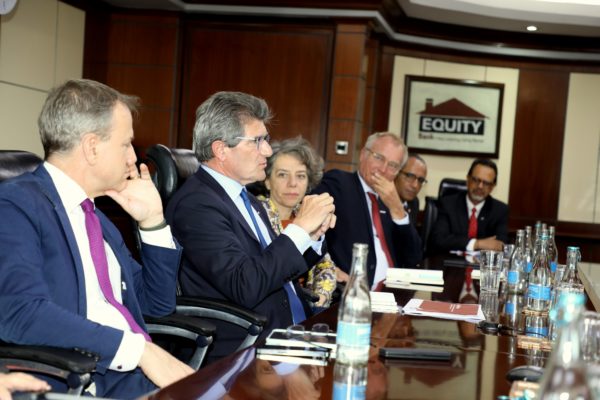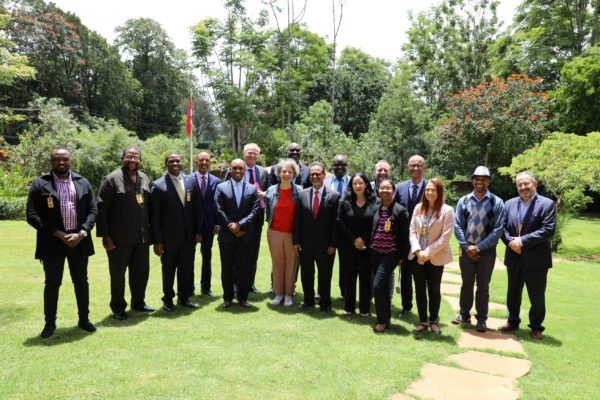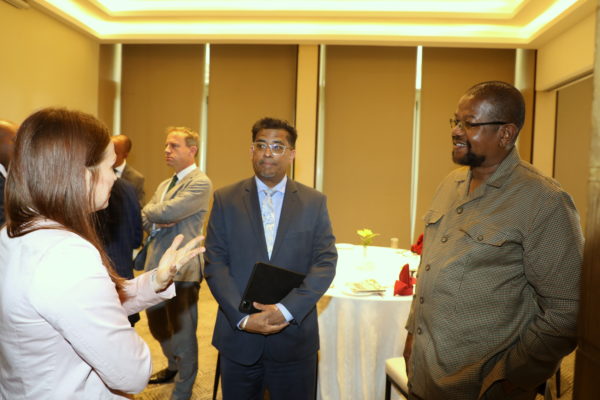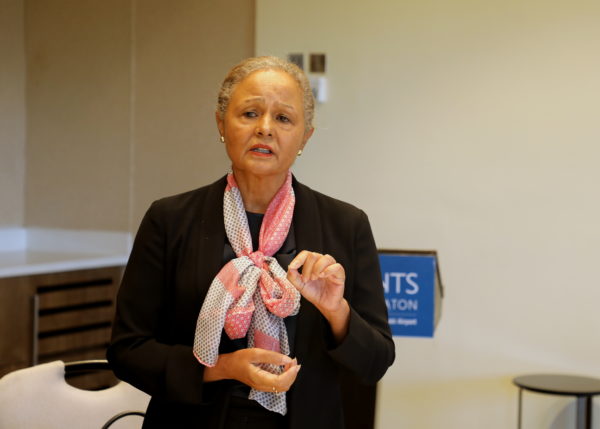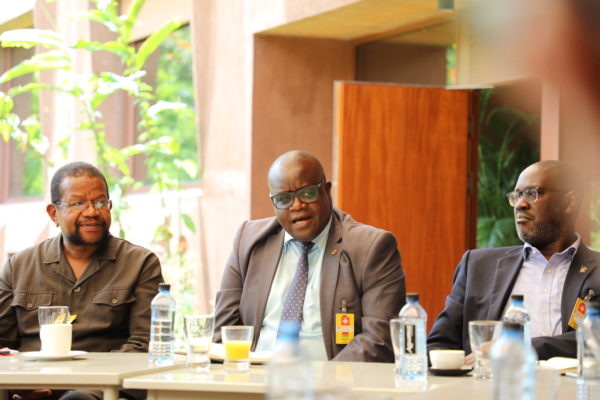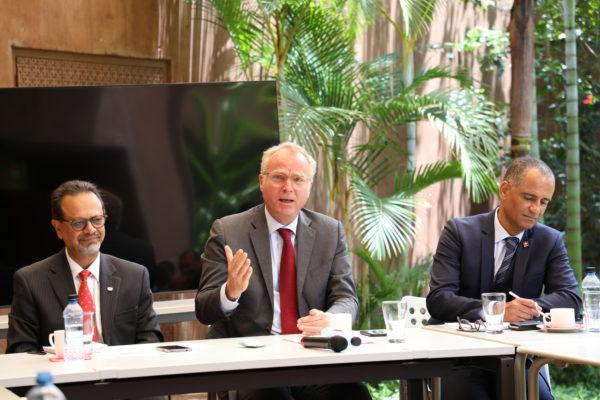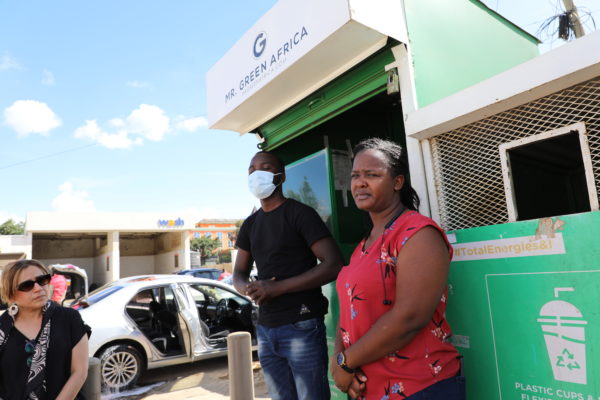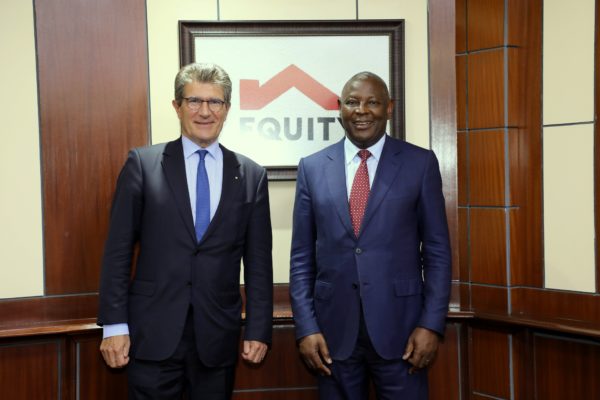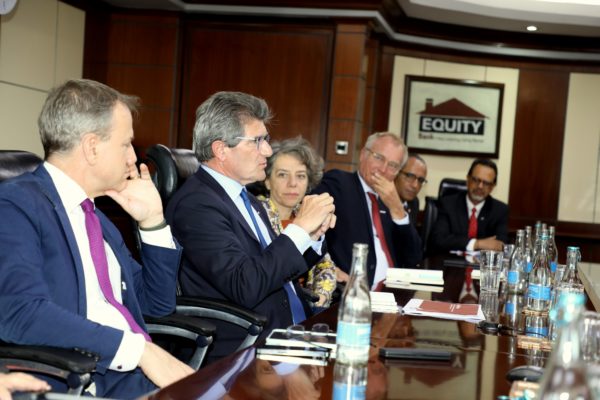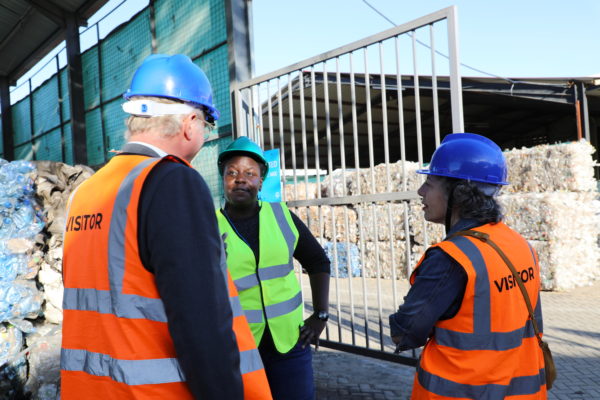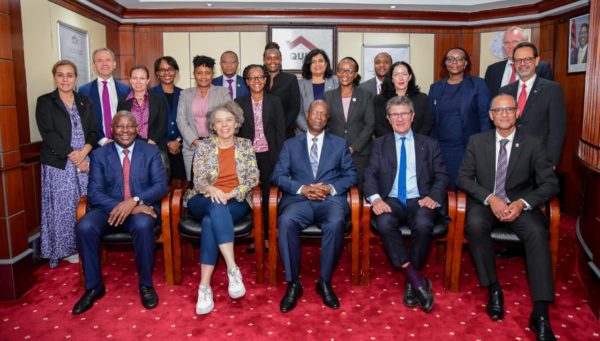In the space of a few decades, private equity has grown from a niche investment to one that cannot be ignored, to the point of becoming an essential part of an asset allocation. The numbers speak for themselves. In 2021, the amount of unlisted assets under management reached USD 10,000 billion, up from USD 3,000 billion a decade earlier (more information).
A growing asset class
Why such a success? First of all, for its high return potential. Secondly, because of its diversification attributes, as performances are most often less correlated with those of the financial markets. With private equity, investors can also exercise greater control over the management of the companies they finance, which allows them to play a more active role in the management of their investment, especially when they have a majority stake.
Long term potential
For those reasons, and also because it is a long-term asset class, private equity is particularly well placed to effectively integrate environmental, social and governance (ESG) criteria into its investment approach. Considering the 5-year historical holding average, private equity backed companies have more time than others to deploy their strategy. As such we can better understand their latitude to act in a way that has a positive impact. In particular, small and medium-sized companies also have a greater capacity for transformation than large capitalizations, which are generally prone to greater inertia.
Increasingly responsible investors
The investment world has been changing. Even if all categories of investors do not yet fully adhere to the principles of sustainable finance, the new generations and institutional investors have given an impetus that will be difficult to reverse. More and more institutional investors have been implementing responsible investment charters to set out principles that shall apply to their investment decisions. To support them, the Institutional Limited Partners Association (ILPA) has also set up analytical grids to help evaluate General Partners’ ESG policies.
Increased pressure on companies
Monitoring as well as assessing sustainable investment approaches in private equity are more stringent than before. Starting from a few questions on ESG issues asked during the due diligence process, monitoring is now done “before, during and after” the deployment of the strategy, until the completion of exit. Similarly, while investors were previously satisfied with strategies that valued companies with a good ESG rating or excluded those with strong links to industries deemed negative (unconventional weapons, tobacco, etc.), they are now seeking to generate a more measurable, concrete and positive impact. They are therefore primarily interested in companies whose value creation and financial performance integrate environmental and/or societal themes and activities (climate, health, education, technology, food, etc.).
The challenge of transparency
As we can see, the subject has now taken hold of private markets and the players are structuring their approach. But vigilance is still required. Although private equity is increasingly positioning itself on sustainability issues, one must not lose sight of the fact that this is only the beginning. To seek sustainable private equity is to make a committed investment. However, to understand the scope of this gesture, it is essential to assess what a manager or a company is really doing. Consequently, the more transparency, the higher the potential level of compliance with ESG criteria. In any case, this is what investors expect from this rapidly changing world.
Article written by Sophie Bourroux and Florian Ménard, Private Markets Investor Relations, Indosuez Wealth Management Switzerland.
Since the Industrial Revolution, economic growth has been tied to rising carbon emissions (1). Much of this is thanks to our seemingly endless appetite for fossil fuels. Now a deep transformation of our energy systems is underway. Plummeting costs and huge efficiency gains are creating economic tipping points as clean, renewable energy technologies come to the fore.
Greening supply
Energy production is the biggest driver of climate change, with nearly three quarters of all man-made greenhouse gas emissions (GHGs) coming from fossil fuels. Most of these are burnt directly for transport, heating or to power heavy industry. Today, just 20% of our final energy supply is met by electricity. Yet if we are to achieve the goals of the Paris Agreement, and limit global warming to 1.5°C, we must reach 70% economy-wide electrification by 2050, with the large majority of our electricity produced by zero-emissions renewables (2).
Over the last decade, the price for electricity generated by wind and solar has plunged – solar is now the cheapest form of electricity in history (3), and in most places both wind and solar generation beat fossil fuels on price. Renewables are, increasingly, becoming first choice for electricity producers on economics alone.
Demand creates a ‘virtuous circle’
The dramatic transformation of our energy systems is being spurred on by growing electricity demand, with electric and battery-powered technologies reaching mass-market tipping points of their own. Most noticeably this is seen on our roads, where electric vehicles now make up 13% of all new car sales (4); and in our homes, where electric heat pumps already meet 10% of global heating needs (5). This virtuous circle – with cheap renewables driving electricity demand and rising demand driving the rollout of renewables – is expanding. In heavy industries such as steelmaking, ‘green’ hydrogen – produced via electrolysis using renewable electricity – is set to become an alternative to fossil fuels. In shipping, similar ‘green’ ammonia will offer a zero-carbon alternative to heavy fuel oil. And our railways will continue to shift from diesel to electric power.
Unexpected profit pools
After more than a century of dominance, conventional power stations are losing their place as we are turning first to renewables. Power is being democratised with the growth of home solar panels putting the means of production into the hands of consumers. This has given rise to a new phenomenon – the ‘prosumer’, who both consumes and produces electricity, selling the excess back to the grid. Investors can be part of this opportunity.
The electrification of our economy will require infrastructure build-out on a vast scale. We estimate that $25 trillion of capital investment will be deployed this decade alone creating an unparalleled opportunity – in often unexpected places. The buildings renovation sector will more than triple in value as millions of homes and offices are retrofitted for efficiency upgrades. And while electric vehicles will continue to see strong growth – we anticipate pure battery vehicles will make up 60% of car sales by 2030 – it is in new revenue streams where the greatest growth will be seen. We estimate that charging-as-a-service and downloadable driver-assist digital updates could grow from near nascency to $240 billion each by 2030.
The search for ‘green alpha’
At Lombard Odier, we believe we must seek out ‘green alpha’ by identifying those firms best placed to both drive and benefit from this transformation. By carefully deploying capital, investors can contribute to the huge scale-up of electrification infrastructure while protecting portfolios against climate risk. Electrification will become the foundation of tomorrow’s economy and today’s investors have a once-in-a-lifetime opportunity to build it.
Guest contribution by Lombard Odier.
Learn more about this topic during Lombard Odier’s event at Building Bridges 2023.
The IFRS Foundation made a significant announcement at COP26, unveiling plans to establish the International Sustainability Standards Board (ISSB). This week, ISSB published its first two standards: S1 General Requirements for Disclosure of Sustainability-related Financial Information and S2 Climate-related Disclosures that aim to create a common language for sustainability disclosures and better inform investment decisions.
Understanding ISSB Standards
With sustainability factors becoming increasingly at the heart of investment decision-making, there is a growing demand for companies to provide reliable, but also globally comparable information on sustainability-related risks and opportunities. The global ISSB requirements regarding the content and presentation of disclosures enables comparability among entities, truly addressing the information needs of investors. These standards will help entities disclose their governance strategy, risk management, metrics and targets, and provide investors and stakeholders with access to consistent and reliable information. They will facilitate the assessment of companies’ environmental and social performance.
Implications for sustainability reporting
According to ISSB’s Chair, Emmanual Faber, “companies have been wrestling with a complex reporting landscape for some time”. The introduction of ISSB standards is expected to have several implications for sustainability reporting within companies:
- It will prompt accountability and responsibility. By establishing clear guidelines, companies will be compelled to measure, manage, and report their sustainability impacts more effectively. This could encourage companies to integrate sustainable practices into their core strategies, promoting long-term value creation and resilience.
- The ISSB standards will enhance the ability to address global sustainability challenges collectively. Through a new common language and reporting framework, it will become easier to identify areas for improvement and track progress toward global sustainability goals, such as the UN SDG’s and the Paris Agreement targets.
- The ISSB standards are likely to have a significant impact on capital allocations decisions. Investors are increasingly recognizing the importance of incorporating ESG factors when assessing long term financial performance. The ISSB standards will provide investors with more reliable and comparable information, enabling them to make more informed decisions, allocate capital toward sustainable investments, and encourage companies to prioritize sustainability practices to attract investment.
What’s next?
For the standards to have their desired impact on markets and companies, they must be properly adopted, but how will ISSB ensure that this is the case? Mr. Faber brings forward that companies won’t be expected to adopt everything in one go, and that transition reliefs will be implemented to ensure that the reporting burden is manageable for companies. For instance, throughout the first year following the release, companies will be allowed to publish their sustainability disclosures at a different time than their general financial report, while in the future they will be required together. Furthermore, in the initial year, companies will be given the choice to exclusively disclose their climate-related risks and opportunities, excluding the wide range of sustainability matters covered by ISSB standards.
Significant economies from Japan to Nigeria have already indicated their commitment to incorporating ISSB standards into their national reporting obligations. In the meantime, the EU is progressing with its own standards, aiming to make them compatible with the ISSB framework. The United States has been lacking clear direction as the Securities and Exchange Commission has postponed the release of its sustainability reporting standards until October
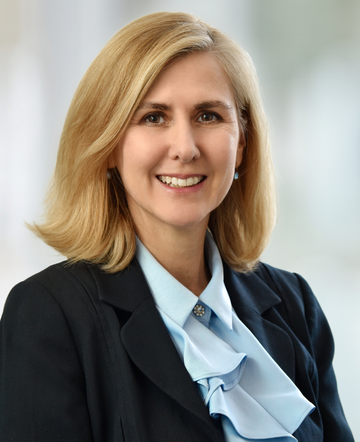
The first two ISSB standards released in June 2023 mark a pivotal step toward achieving global sustainability goals. By establishing globally consistent and standardized reporting requirements, these standards will promote transparency, accountability, and collective action. They will enable investors, stakeholders, and the public to assess companies’ sustainability performance accurately and make informed decisions. With the ISSB standards, sustainability reporting will become a crucial tool for driving positive change and creating a more sustainable and resilient future. The role of these standards will be addressed at the 2023 Building Bridges Summit during a panel discussion with Sue Lloyd, ISSB’s Vice Chair. Buy your tickets for the next edition of Building Bridges.
Public and private actors gathered in Paris from June 22-23 to reaffirm their collective commitment to addressing the interconnected challenges of climate change, nature conservation, and sustainable development. Recognizing the urgent need for action, stakeholders undertook a series of engagements aimed at modernizing the international financing system and safeguarding global public goods while ensuring accessible financing for vulnerable populations. They further reinstated the importance of the UN SDG Stimulus, “Bridgetown 2.0” agenda and V20’s Accra-Marrakech agenda.
Enhancing the International Financing System
Nearly 80 years after the establishment of the Bretton Woods institutions, efforts were initiated to strengthen and modernize the international financing system. Such endeavors take on increased importance due to multiple crises overlapping, plunging an additional 120 million people into poverty over the past three years. Achieving a net-zero, biodiversity-positive world in line with the Paris Agreement’s 1.5°C target and the Kunming-Montreal Framework necessitates transformative changes in economies and societies, including a shift from billions to trillions in global investments.
Creating Opportunities in 2023
Acknowledging the challenging global environment, leaders expressed their belief in transforming 2023 into a year of opportunity. Following deliberations on various policy issues, a set of priority actions were identified to construct a more resilient and shock-responsive financial system suited to the 21st-century challenges. Global issues are interconnected, and addressing new challenges should not come at the expense of the fight against global poverty.
Winning the Battle Against Poverty and Vulnerabilities
Leaders stressed the need for multidimensional approaches when fighting poverty and vulnerabilities. Since climate-related disasters are more frequent, global measures to safeguard vulnerable countries and provide them with adequate financial resources are needed. The Summit led to new agreements that will restructure the debt payments of countries facing climate-related disasters. In this view, Zambia marked a historical achievement as it unlocked the second disbursement of the IMF program. Likewise, Ivory Coast and France agreed to a debt reduction. Columbia, Kenya and France also proposed the establishment of a Global Expert Review on Debt, Nature and Climate to assess the impact of debt on low- and medium-income countries’ capacity to preserve nature and decarbonize their economy. The World Bank announced that it will reinforce its capacity to assist countries in preparing and responding to crises. Education financing was identified as a key investment to alleviate poverty, with universal secondary education offering the potential to lift 420 million people out of poverty globally.
Reinforcing International Solidarity
To foster a fairer world, leaders recognized the crucial role of international solidarity and the transfer of capital from the North to vulnerable countries. Efforts to mobilize low-cost finance were explored, and commitments were made to provide additional financial support to countries in need. A new accounting method was proposed to incentivize private financing and increase contributions to global initiatives. Public development banks pledged to align their activities with the Sustainable Development Goals and the Paris Agreement, emphasizing the importance of collaboration across institutions and stakeholders. In this perspective, the Paris Dialogue on Financing for Sustainable Development was launched to build a Paris-based international hub.
Protecting the Planet and Shared Goods
The transition toward a net-zero and biodiversity-positive world requires systemic transformations across key sectors of the economy. Leaders emphasized the importance of steady economic growth, investments in human capital, and shifts in production and consumption patterns while prioritizing protection of global public goods such as clean air, forests and oceans. It was agreed that giving a price to carbon can play a significant role in reducing GHG emissions and generating additional revenues to finance the transition. France and the UK are working toward a global roadmap on bio credits to redirect the private sector’s investments on natural capital. A Just Energy Transition Partnership was signed between Senegal and G7 countries to support its transition by 2030. Stakeholders also expressed in favor of the adoption of a levy on the greenhouse gas emissions on the international maritime transportation sector. The World Bank launched the Private Sector Investment Lab to investigate the barriers preventing the private sector from investing in emerging markets.
The Paris Summit exemplified the determination of public and private actors to tackle climate, nature, and development challenges through global cooperation. The engagements and commitments that emerged during the Summit serve as stepping stones toward building a more inclusive, resilient, and sustainable future for all.
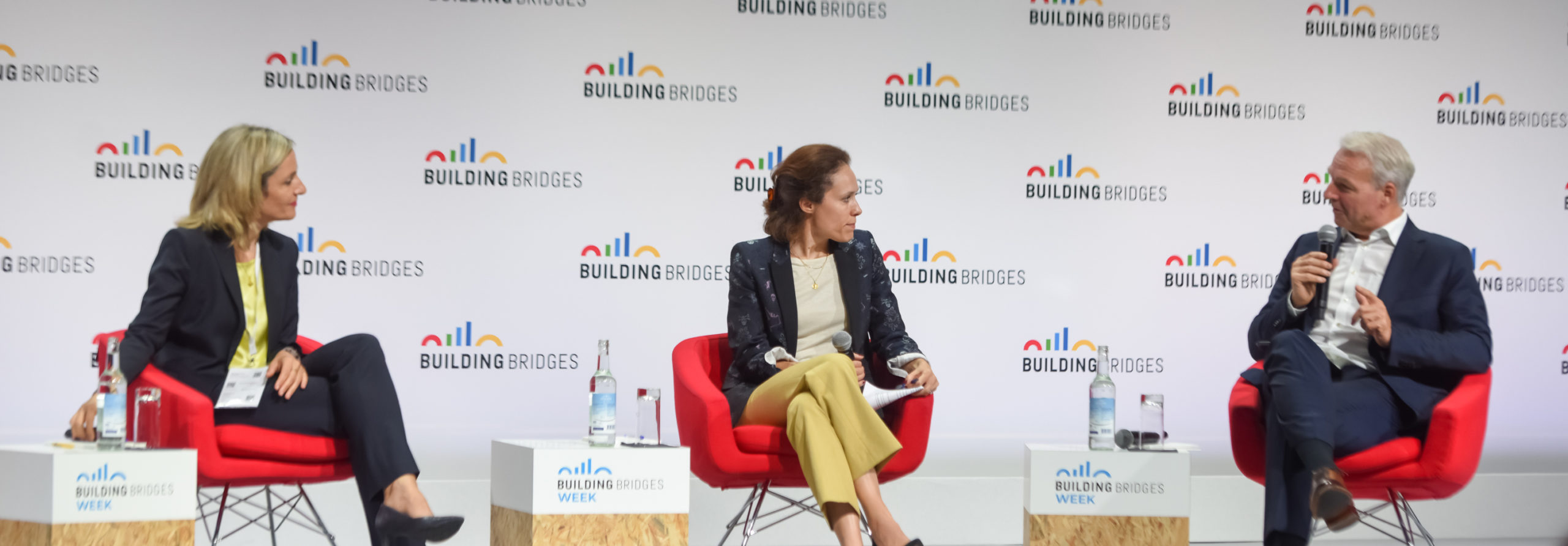
Volunteer at Building Bridges 2023
Building Bridges is a week-long sustainable finance conference focused on bringing together diverse stakeholders to accelerate the transition to a sustainable economic system aligned with the vision put forth in the UN Sustainable Development Goals and the Paris Climate Agreement.
The next edition of Building Bridges will take place on October 2-5 at CICG in Geneva. It will feature a summit, 3 action-oriented days with over 65 events on sustainable finance, and a networking village. It is expected to attract over 2,000 attendees from the finance industry, the United Nations, governments, NGOs, academia, and more.
We are seeking a large group of volunteers to support the Building Bridges Action Days and Summit.
WHY VOLUNTEER?
- Learning – Building Bridges will cover the most recent and cutting-edge developments related to sustainability and finance. It is a great opportunity to learn more about this space from leading experts.
- Networking – The initiative is supported by a wide array of partners and all will be in attendance. It is a great way to meet new people whether it be business leaders from financial institutions, social entrepreneurs from developing countries, UN leaders and governmental representatives, NGOs, researchers, and thought leaders. In addition, you will have the opportunity to meet other volunteers who, like you, are motivated by the desire to make a positive impact and accelerate the transition to a more sustainable and equitable financial system.
- Recognition – All volunteers will be recognized in several ways:
-
Each volunteer will receive a certificate and letter recognizing their efforts and contributions.
- Opportunity to interact and engage with business leaders from financial institutions, social entrepreneurs from developing countries, UN leaders and governmental representatives, NGOs, researchers, and thought leaders during the event. This engagement will foster valuable connections, knowledge exchange, and networking opportunities.
-
A volunteer page will be featured on our final report summarizing Building Bridges 2023.
-
Note: All volunteers are provided with Lunch/ Snacks as per their schedules and allocated tasks during the time of their shifts.
WHAT DO VOLUNTEERS DO?
We have a range of roles for volunteers, they roughly fit into two categories:
- Event-focused activities such as managing the registration and check-in process, providing information, scanning badges, and running the cloakroom.
- Logistics and Management activities such as logistical help to Building Bridges staff, helping attendees with directions, help event organizers with any technical requirements or needs for their events during the week.
Each volunteer will do a mix of these activities depending on their availability and schedule.
HOW DO I SIGN UP?
Any students or other individuals interested in volunteering simply need to fill out this form no later than August 31, 2023. In the form, you will indicate how many days you are willing to volunteer and your availability during the week. This will be used to make you a custom schedule. Any questions about the Building Bridges Volunteer Program can be directed to community@buildingbridges.org
Building Bridges 2023 will take place on October 2-5 at the CICG in Geneva and host transformative discussions that will shape the global sustainable finance agenda. Join this ground-breaking conference to accelerate the transition of our economic model and connect with 2000+ actors from the finance industry, the corporate sector, the sustainable development community, and young entrepreneurs.
Building Bridges’ 4th edition will open with a High-level Summit that will explore the interdependence of human, social, natural, climate and financial capital with prominent thought leaders.The Summit will be followed by 3 Action Days that will address the latest trends in sustainable finance, and dive into the investment opportunities and challenges generated by climate change, nature loss, technology, and emerging markets.Our Building Bridges Village will provide unique opportunities to network with key figures of the industry and like-minded institutions that wish to contribute to a fairer and just transition.
Our 4th edition will host key initiatives that will pave the way for global frameworks and standards. We are proud to announce that the Taskforce on Nature-related Financial Disclosures chose to launch its new framework that will help businesses integrate nature into their decisions at Building Bridges 2023.
***
“The ambitious TNFD framework will guide companies to identify, assess and understand their impact on nature to support a shift in global financial flows away from nature-negative outcomes towards nature-positive ones. We are proud to help reverse nature’s loss with this European launch at Building Bridges 2023.”
Elizabeth Maruma Mrema, TNFD Co-Chair
***
“Building Bridges is more than an event! It is a place where people can learn, share experiences and connect with actors who are leading the transition toward sustainability. With this 4th edition, our ambition is to become THE platform that will host the discussions, projects and voices that will shape our sustainable future.”
Patrick Odier, Building Bridges Chairman
ONE CREATION Impact Finance launched its 2023 Environmental Innovation Awards to support young companies that are creating innovative sustainable solutions.
Since 2010, ONE CREATION Impact Finance has been financing private companies in the field of environmental innovation. In 2022, it recognized the need to encourage entrepreneurship at an early stage and decided to launch a contest to reward innovative companies.
Environmental Innovation Awards
Candidate companies are expected to provide concrete and innovative solutions to environmental issues through the following themes:
- Renewable energy: All energy solutions from non-exhaustible natural sources.
- Energy Efficiency: All the processes, management systems, tools, products and services that enable a reduction in energy consumption.
- Sustainable materials: Materials that can be substituted for existing, more polluting materials.
- Sustainable mobility: Low-polluting means of travel and other services or products that reduce the environmental impact of the transportation of people and goods.
- Waste management: All products, services and tools that either recycle waste, produce energy from it, reduce the production of waste or treat it in a way that reduces its impact on the environment.
- Water management: Products, services and tools that enable the efficient and sustainable management of available water resources.
- Cleantech: Any innovation that has the potential to reduce environmental impacts.
- Sustainable food and agriculture: All solutions that make it possible to reconcile productivity and limit the impact of the food and agriculture sector on our environment.
After being selected by a jury out of a pool of 15 finalists, the three winning companies will receive a monetary contribution, and get visibility through the community of investors of One Creation. The Awards Ceremony will take place at Building Bridges 2023 in Geneva.
We are currently witnessing stark inequalities of income, wealth, and wellbeing all over the world. In May 2023, the World Business Council for Sustainable Development released a new report that recognizes mounting inequality as a systemic risk that poses an existential threat to our society and economy. “Tackling inequality: An agenda for business action” provides new analysis into the critical role of the private sector in addressing inequality, and the powerful reasons why business must act with urgency. The report underlines how tackling inequality helps companies mitigate operational, reputational, regulatory and financial risks, while unlocking new market opportunities. The document offers a comprehensive and impactful action agenda that business leaders can leverage to help build a world of opportunity for all.
The Business Commission to Tackle Inequality (BCTI) outlines 10 key actions that businesses across all sectors can take as part of their efforts to address the systemic risk of mounting inequality:
- Action 1: Adopting policies and practices that put respect for human rights at the center of how business gets done.
- Action 2: Ensuring that all people have what they need to be healthy and productive.
- Action 3: Building work environments and markets in which all individuals are empowered to participate, prosper and reach their full potential.
- Action 4: Building a workforce that is skilled and empowered to benefit from the developments that are transforming the world of work.
- Action 5: Ensuring that the terms and conditions of work protect and enhance the health and wellbeing of all workers.
- Action 6: Eradicating poverty wages and ensuring that everyone who works earns enough to afford a decent standard of living.
- Action 7: Giving workers greater ability to affect corporate decision-making about the terms and conditions under which they work.
- Action 8: Helping to propel government toward greater and more impactful action on inequality.
- Action 9: Approaching tax as an essential part of good governance and a fundamental investment in the societies where business operates.
- Action 10: Acting in line with science to address the climate emergency and restore nature, while leveraging these transformations to advance shared prosperity.
Inequality-related risks are also strongly linked to climate change and nature loss. The environmental crisis is having direct impacts on people, health, products and services, and hitting the most vulnerable groups the hardest. At the same time, the transition to a net-zero carbon and nature positive economy will only be successful if it is equitable and inclusive, and delivers opportunities for workers and communities around the world.
As part of its efforts towards sustainability, Switzerland has made sustainable finance one of its core strategic objectives and has been at the forefront of its development for the past decades.
As explained by Patrick Odier, President of Building Bridges and Swiss Sustainable Finance, responsible investing in Switzerland has been evolving since the mid-1990s.
“The concept was not discovered and implemented recently; the country has a long history in developing innovative sustainable finance solutions that few others can offer,” he notes.
The knowledge gained throughout the years has also enabled Switzerland to be one of the first countries to adopt a methodological approach towards sustainability – the Swiss Climate Scores. Through this approach, financial institutions are not forced to take any action, but are instead encouraged to identify steps through critical thinking and scientific examination, and voluntarily implement the necessary measures to achieve sustainable investments.
“This approach has been made possible by the high level of trust and the fluidity of dialogue we have between the authorities and the sector. Banks and Asset Managers have been asked not only to propose practical measures, but also concrete strategies to self-regulate in this respect, both at the product and point of sales levels,” Patrick Odier says.
He also points out the internationality of the Swiss financial sector which not only brings in more ideas, but also makes it more attractive for innovative sustainable investment opportunities.
“Middle Eastern investors in particular find Switzerland very appealing also due to the similarities between Sharia principles and the Swiss philosophy towards sustainable finance,” Odier concludes.
Interview published in the Invest in Switzerland issue of the Arabian Business Magazine in May 2023
Building Bridges’ mission is to strengthen partnerships between diverse communities in order to transition to a more sustainable economic system. In April 2023, our team traveled to Kenya to learn more about the impact investing community in Nairobi, and exchange with financial actors who are implementing new innovative services to support the Sustainable Development Goals.
Developing economies in Africa are directly affected by the negative impacts of climate change. Kenya’s economy is highly dependent on natural resources, which creates long-term risks for companies and financial institutions. To adapt to the climate crisis, Nairobi’s dynamic ecosystem has been implementing innovative approaches that promote the use of renewable energy, re-imagine agriculture practices, and improve access to water.
Emerging markets have a key role to play to enable a strong financial system that positively impacts the environment, the planet and its inhabitants. Nairobi’s impact investing hub offers immense opportunities to innovate our economic system. Climate degradation has encouraged the development of new initiatives that re-imagine our economic, social, digital and health systems. Kenya is one of the top providers of sustainable finance in Africa, using instruments such as green bonds to unlock capital for inclusive projects. Kenya’s fast-growing economy offers strong opportunities to develop alternative industries, and expand the interest of private and institutional green investors.
With the collaboration of the Swiss Embassy in Nairobi, and the UN mission in Kenya, Building Bridges learned from the experience of the Founder of Equity Group, James Mwangi, who has been supporting young people, women and entrepreneurs in Kenya by availing modern and inclusive financial services. Equity Group has been leading the sustainable transition in the country and transforming people’s lives across Africa by providing access to funding and stimulating job creation.
Our team also met inspiring startups and companies such as Mr Green Africa that is revolutionizing waste management, and BasiGo that is re-imagining public transportation by providing cost-effective electric alternatives to diesel buses. Electric buses considerably reduce costs and emissions, and can significantly improve air quality in a country where air pollution is responsible for 1 in 5 premature deaths.

